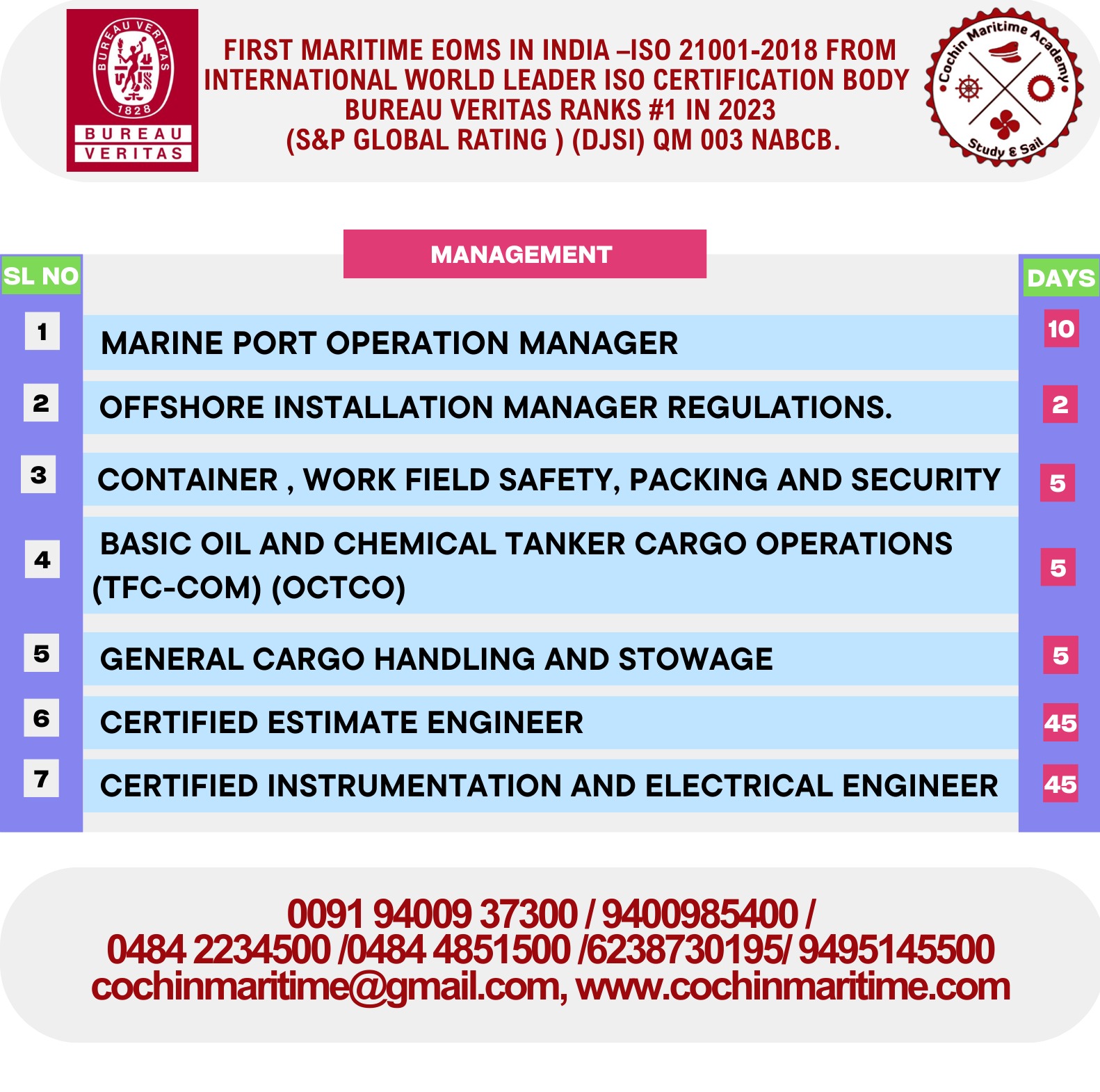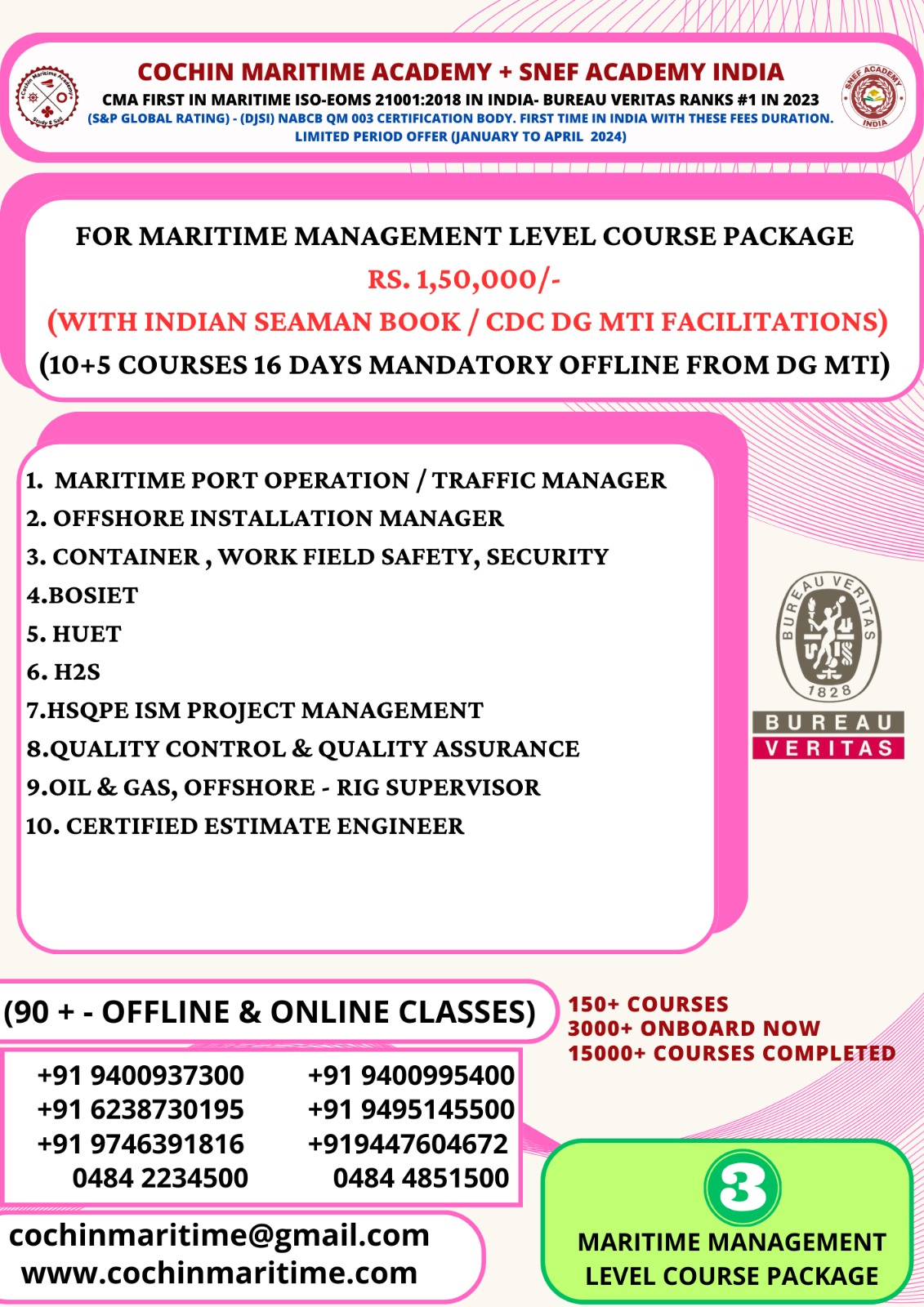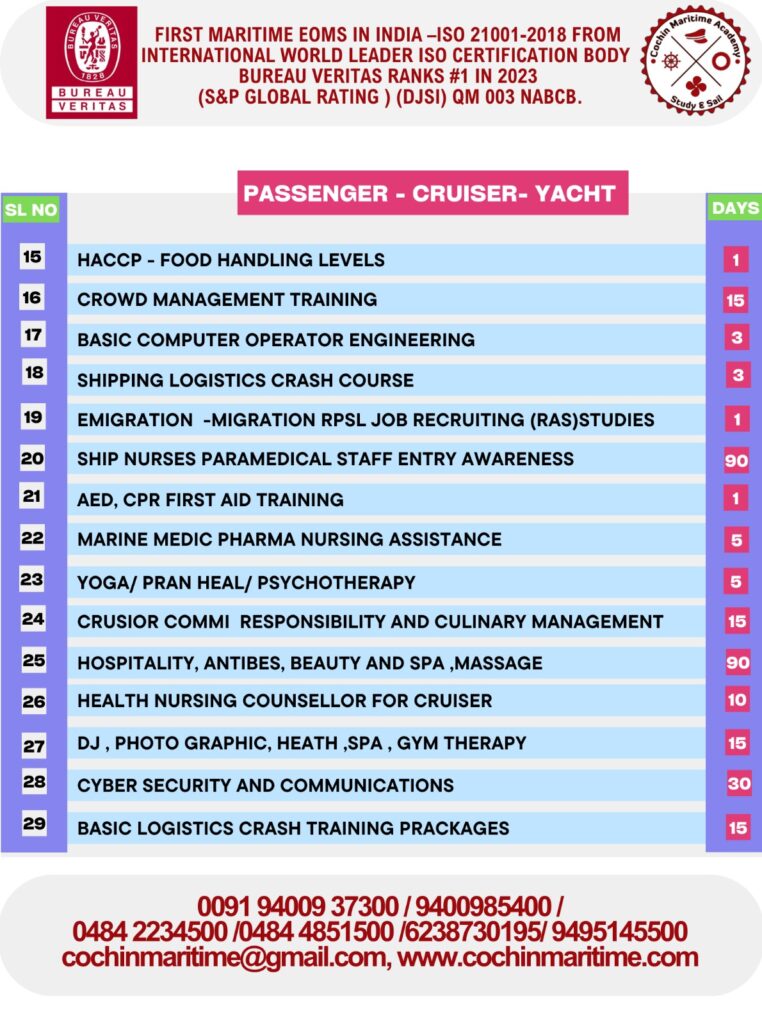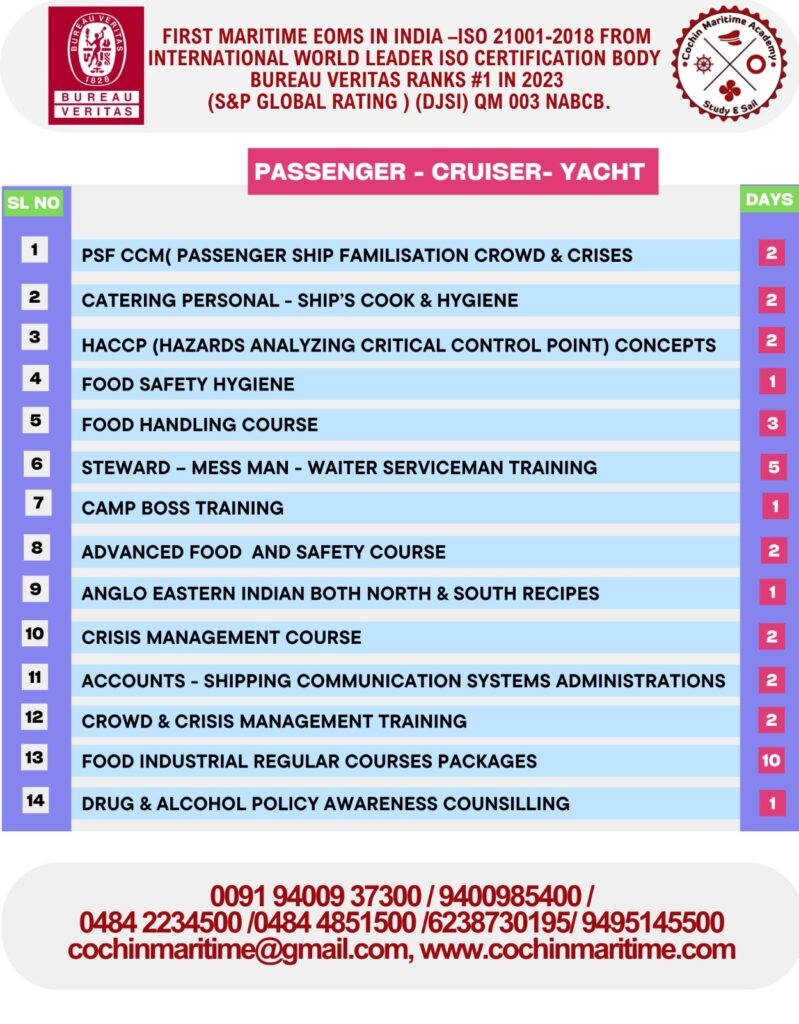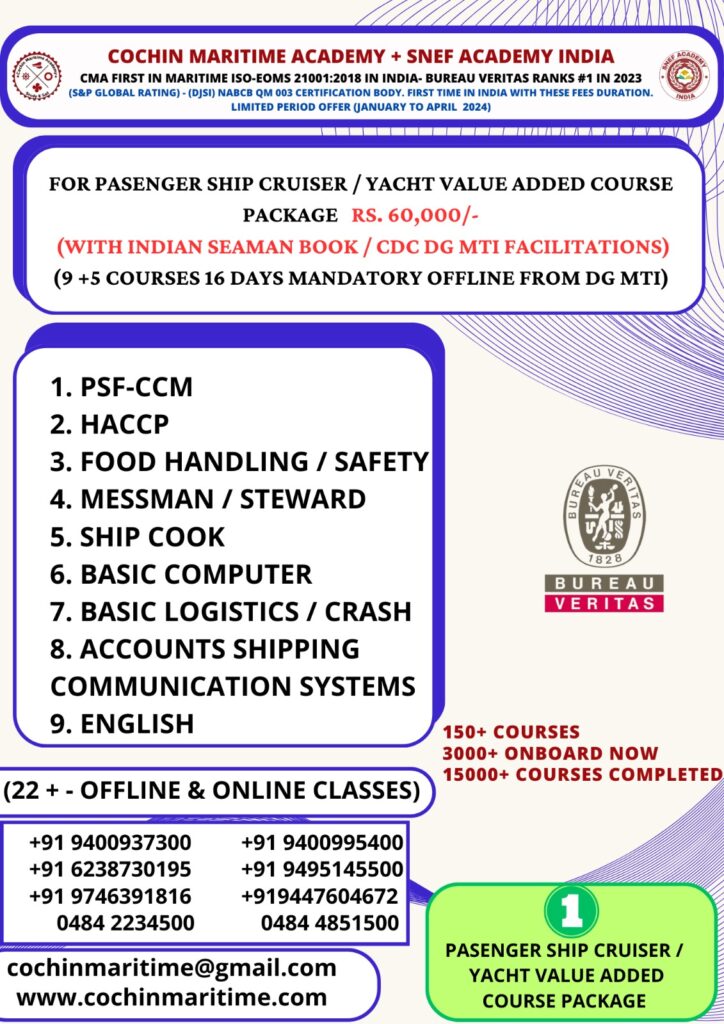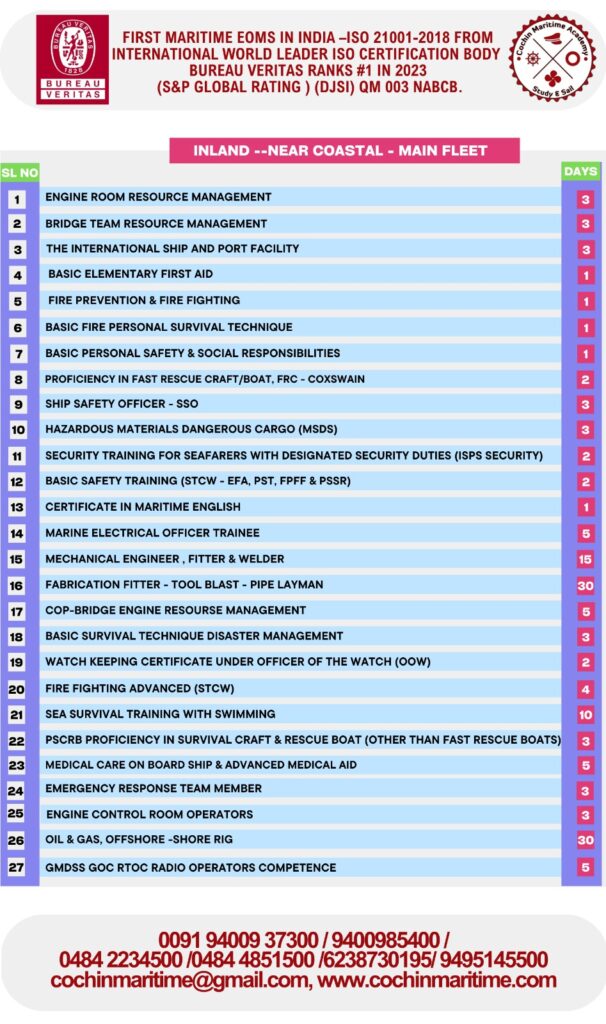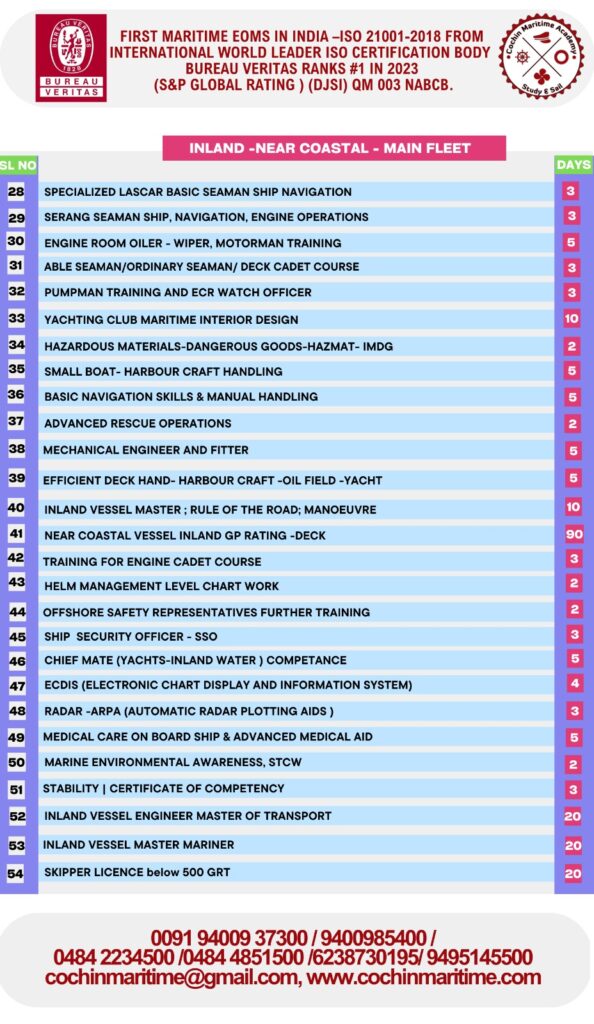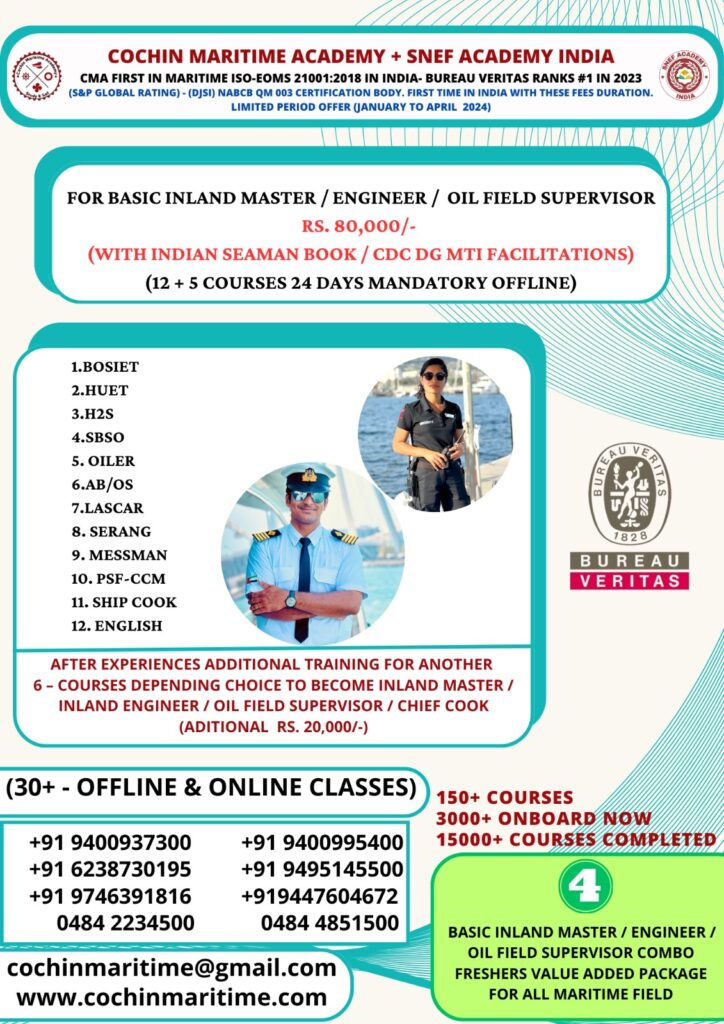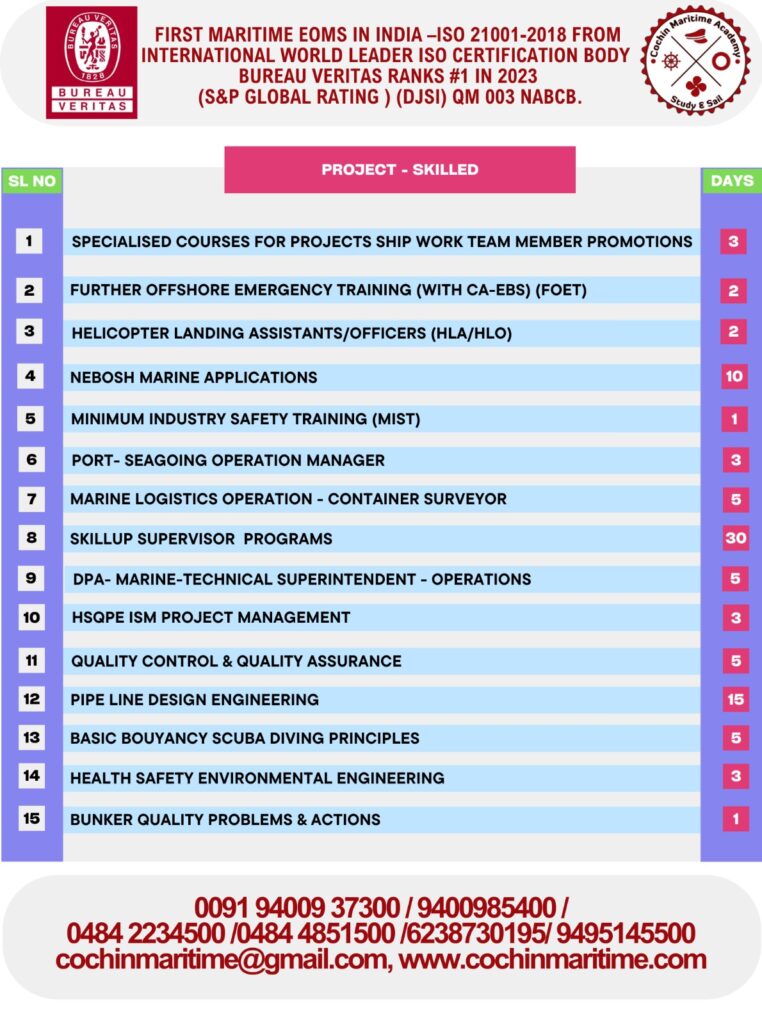Value Added Courses
OFFSHORE OIL FIELD COURSES
Offshore oil fields are critical components of global energy production, situated beneath the ocean floor and requiring specialized equipment, technology, and expertise for extraction. These fields play a pivotal role in meeting the world’s energy demands, driving economic growth, and shaping geopolitical dynamics.
Courses focused on offshore oil field operations are essential for professionals in the oil and gas industry, covering a wide array of topics including offshore engineering, drilling techniques, safety protocols, environmental management, and regulatory compliance.
The importance of these courses cannot be overstated. They are crucial in preparing individuals to navigate the complexities of offshore oil operations. Participants gain a deep understanding of offshore engineering principles, learning how to design, construct, and maintain offshore structures such as platforms and pipelines. They also acquire expertise in drilling operations, including techniques for exploring and extracting hydrocarbon reserves from beneath the ocean floor.
Safety and environmental management are paramount in offshore oil field operations. Courses in this area focus on developing strategies to mitigate risks and minimize environmental impacts associated with oil extraction activities. Participants learn about safety protocols, emergency response procedures, risk assessment, and environmental monitoring to ensure the well-being of personnel and the protection of marine ecosystems.
Moreover, courses address regulatory and legal aspects governing offshore oil operations. Professionals learn about licensing requirements, environmental regulations, contractual agreements, and dispute resolution mechanisms to ensure compliance and minimize legal risks.
The importance of these courses extends beyond individual skill development. They contribute to the overall efficiency, safety, and sustainability of offshore oil field operations. By investing in education and training, the oil and gas industry ensures a competent workforce capable of addressing the challenges and opportunities associated with offshore exploration and production, thereby safeguarding human lives, protecting the environment, and optimizing resource extraction.
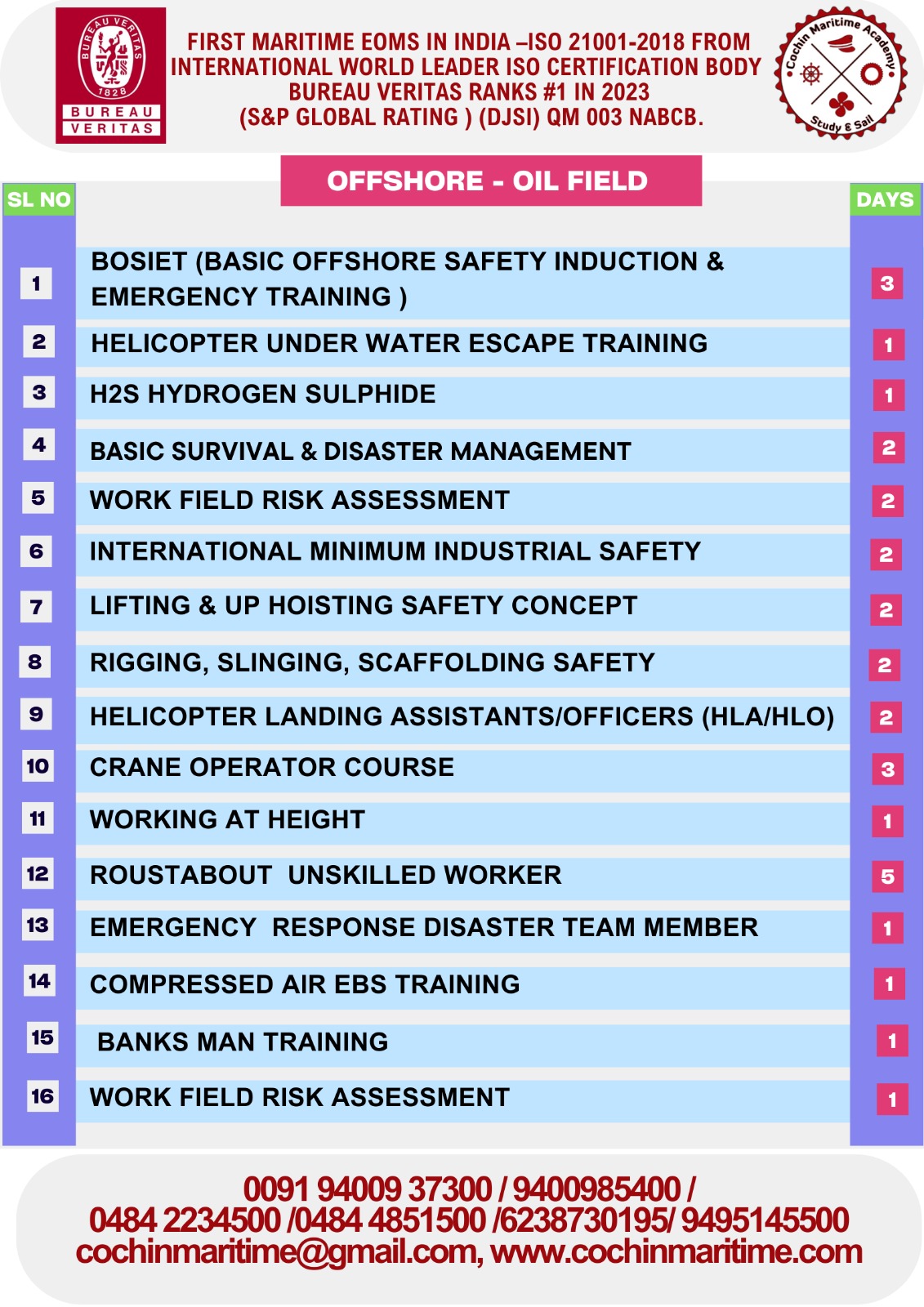
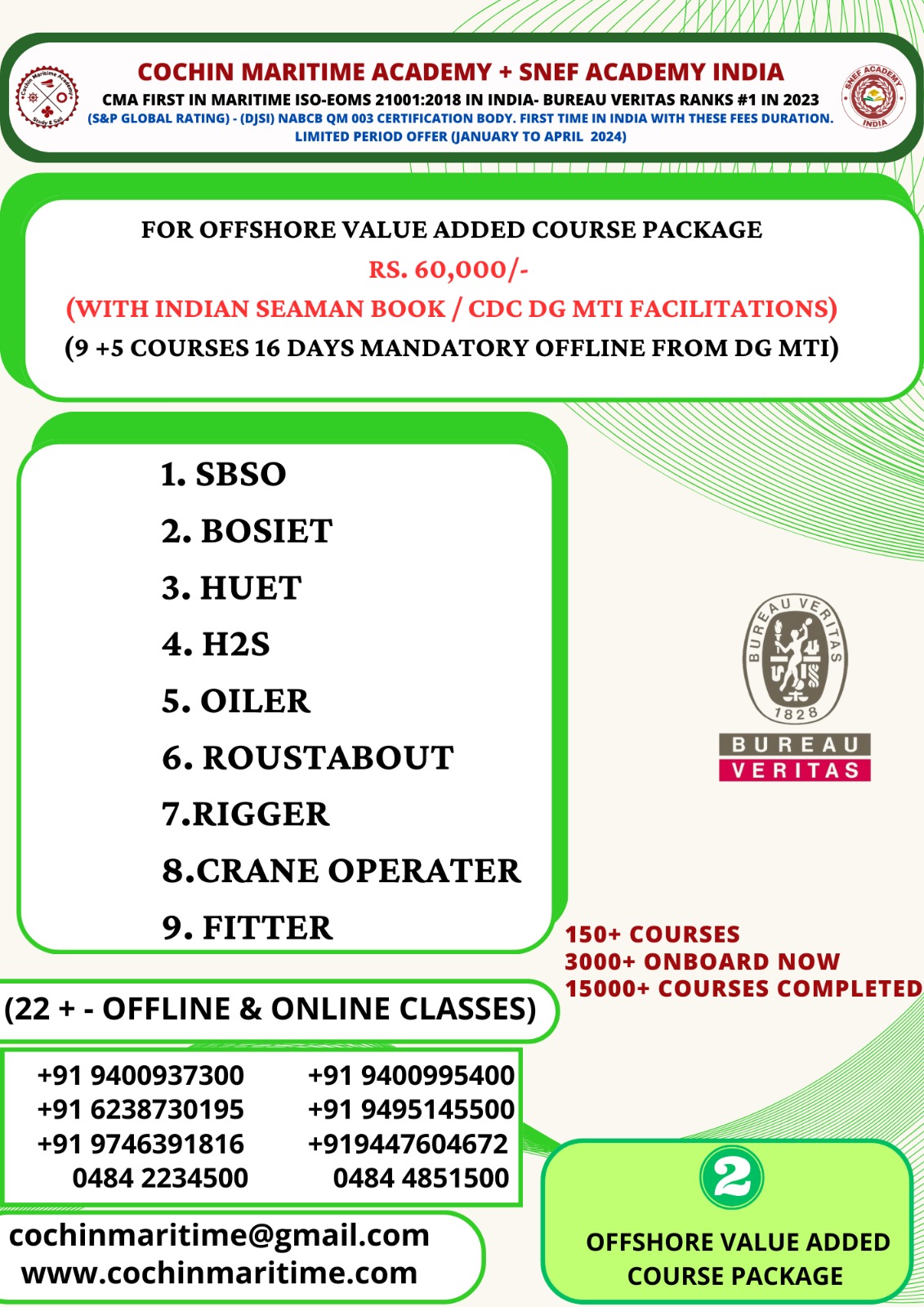
PASSENGER - CRUISE - YACHT COURSES
Passenger cruise yachts represent the epitome of luxury travel, offering guests a unique and indulgent experience on the high seas. These vessels are meticulously designed to provide opulent accommodations, world-class amenities, and exceptional service, catering to travelers seeking a premium vacation experience. Courses focused on passenger cruise yacht operations are essential for professionals in the maritime industry, covering a wide range of topics including hospitality management, navigation, safety protocols, and customer service.
The importance of these courses lies in their role in preparing professionals to manage the complexities of operating a passenger cruise yacht. With a limited number of guests onboard, each individual’s experience must be carefully curated to ensure satisfaction and safety. These courses equip crew members with the skills needed to deliver personalized service, manage onboard facilities, and address any emergencies that may arise.
Moreover, passenger cruise yacht courses emphasize the significance of environmental stewardship in maritime operations. Sustainable practices are promoted to minimize the ecological footprint of yacht cruises, ranging from waste management to energy conservation measures. By instilling a culture of environmental responsibility, these courses contribute to the preservation of marine ecosystems and promote eco-friendly tourism.
Passenger cruise yachts play a vital role in the tourism industry, offering travelers a luxurious and memorable way to explore the world’s most captivating destinations. Investment in education and training for cruise yacht professionals underscores the industry’s commitment to excellence and safety. By equipping crew members with the necessary skills and knowledge, these courses ensure that passengers experience the highest standards of service and comfort while aboard these floating palaces. Ultimately, the importance of passenger cruise yacht courses lies in their contribution to the continued success and sustainability of this prestigious sector of the maritime industry.
INLAND - NEAR COSTAL-MAIN FLEET COURSES
Inland, near coastal, and main fleet courses are integral components of maritime education, catering to the diverse needs of professionals operating vessels in different water bodies, ranging from rivers and lakes to coastal areas and open seas. These courses provide comprehensive training on various aspects of vessel operation, navigation, safety, and regulatory compliance, tailored to the specific challenges and environments encountered in each setting.
The importance of these courses lies in their role in preparing mariners for the distinct challenges posed by different maritime environments. Inland waterways, characterized by narrow channels, bridges, locks, and fluctuating water levels, require specialized knowledge and skills to navigate safely. Courses in inland navigation focus on topics such as inland rules of the road, bridge clearance calculations, lock operations, and buoyage systems specific to inland waterways.
Near coastal areas present their own set of challenges, including tidal currents, shallow waters, and the potential for adverse weather conditions. Near coastal courses cover topics such as coastal navigation techniques, coastal piloting, coastal weather patterns, and emergency procedures relevant to near shore operations.
Main fleet operations involve navigating the open ocean, where mariners must contend with deep waters, long voyages, and complex international regulations. Main fleet courses focus on ocean navigation, celestial navigation, voyage planning, maritime law, and international conventions governing ship operations.
By providing specialized training in inland, near coastal, and main fleet operations, these courses ensure that mariners possess the knowledge, skills, and competencies required to operate vessels safely and efficiently in diverse maritime environments. Participants learn about navigation aids, chart reading, collision avoidance, communication protocols, and emergency response procedures, enabling them to navigate confidently and responsibly in any situation.
Furthermore, inland, near coastal, and main fleet courses emphasize the importance of environmental stewardship and regulatory compliance. Participants learn about pollution prevention measures, waste management practices, and international maritime regulations aimed at protecting marine ecosystems and ensuring the sustainable use of marine resources.
Overall, these courses play a crucial role in fostering a skilled and responsible maritime workforce capable of operating vessels safely and efficiently across a wide range of maritime environments. By investing in education and training, the maritime industry ensures the safety of personnel, the protection of the environment, and the sustainable development of maritime transportation systems.
PROJECT SKILLED
Maritime Project – Skilled offers a wide range of comprehensive maritime courses tailored to meet the diverse needs of individuals aspiring to enter or advance in the maritime industry. Our courses cover various aspects of maritime operations, including navigation, vessel handling, safety protocols, environmental sustainability, and regulatory compliance.
Our experienced instructors, who are experts in their fields, utilize a combination of classroom lectures, practical simulations, and hands-on training exercises to provide participants with a well-rounded learning experience. Whether you’re a novice looking to start your career in the maritime sector or an experienced professional seeking to enhance your skills, we have the right course for you.
The importance of Maritime Project – Skilled courses cannot be overstated. Here’s why:
1. Safety: Safety is paramount in maritime operations. Our courses emphasize safety protocols, emergency response procedures, and risk management techniques to ensure the well-being of crew members and passengers. By instilling a culture of safety, we help minimize the risk of accidents and incidents at sea.
2. Compliance: The maritime industry is subject to numerous regulations and standards. Our courses cover relevant legal frameworks and industry regulations, ensuring that participants understand and comply with all applicable laws and requirements. This helps mitigate legal risks and ensures that maritime operations are conducted in a responsible and lawful manner.
3. Skills Development: Our courses are designed to develop practical skills that are essential for success in the maritime sector. Participants learn navigation techniques, ship handling skills, and other critical competencies necessary for effective maritime operations. Whether it’s mastering the intricacies of celestial navigation or learning how to maneuver a vessel in challenging conditions, our courses provide participants with the expertise they need to excel in their chosen field.
MANAGEMENT COURSES
Maritime management courses are essential for individuals seeking to pursue careers in the maritime industry’s management and administrative sectors. These courses cover a wide range of topics, including maritime law, logistics, supply chain management, finance, leadership, and strategic planning.
The importance of maritime management courses lies in their role in preparing individuals for leadership positions within the maritime sector. Participants gain a deep understanding of industry-specific challenges and opportunities, as well as the knowledge and skills needed to address them effectively.
By enrolling in maritime management courses, individuals acquire the expertise necessary to oversee maritime operations, manage resources efficiently, and navigate complex regulatory frameworks. These courses also emphasize the importance of sustainability and environmental stewardship in maritime management practices, ensuring that participants are equipped to promote responsible and ethical decision-making within the industry.
Overall, maritime management courses play a crucial role in developing competent and effective leaders who can drive innovation, efficiency, and growth within the maritime sector.
